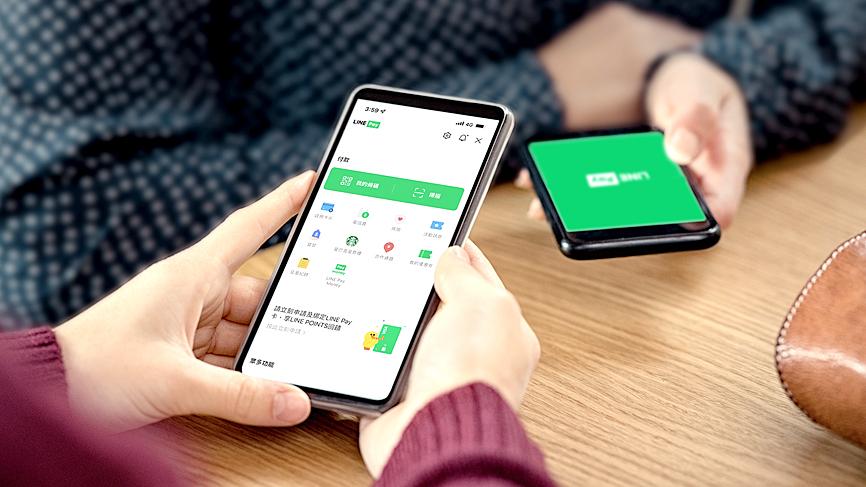Line Pay Taiwan Ltd (連加網路商業) yesterday reported that the number of transactions and the total value of transactions each rose 70 percent year-on-year to 160 million and NT$74.6 billion (US$2.47 billion) respectively in the first half of this year.
The number of transactions included those from the company’s mobile payment product Line Pay, which links customers’ credit cards with the electronic payment service, and its iPass Money service, which connects with customers’ bank accounts.
Line Pay did not disclose a breakdown of the transactions differentiating the two products, both of which can be accessed through the messaging app of its affiliate Line Taiwan Ltd (台灣連線).

Photo courtesy of Line Pay Taiwan Ltd
The company attributed the growth in transactions to more merchants accepting Line Pay as well as the company’s close collaboration with banks and insurers.
A series of marketing activities in the first half of the year also helped boost the services’ profile, the company said in a statement.
From breakfast vendors to restaurants in local night markets, more than 400,000 merchants accept Line Pay, the company said.
Meanwhile, by partnering with 14 insurance companies and 15 banks, the company said that consumers are able to buy insurance policies directly through its mobile payment tool and apply for loans through its banking platform.

In Italy’s storied gold-making hubs, jewelers are reworking their designs to trim gold content as they race to blunt the effect of record prices and appeal to shoppers watching their budgets. Gold prices hit a record high on Thursday, surging near US$5,600 an ounce, more than double a year ago as geopolitical concerns and jitters over trade pushed investors toward the safe-haven asset. The rally is putting undue pressure on small artisans as they face mounting demands from customers, including international brands, to produce cheaper items, from signature pieces to wedding rings, according to interviews with four independent jewelers in Italy’s main

Japanese Prime Minister Sanae Takaichi has talked up the benefits of a weaker yen in a campaign speech, adopting a tone at odds with her finance ministry, which has refused to rule out any options to counter excessive foreign exchange volatility. Takaichi later softened her stance, saying she did not have a preference for the yen’s direction. “People say the weak yen is bad right now, but for export industries, it’s a major opportunity,” Takaichi said on Saturday at a rally for Liberal Democratic Party candidate Daishiro Yamagiwa in Kanagawa Prefecture ahead of a snap election on Sunday. “Whether it’s selling food or

CONCERNS: Tech companies investing in AI businesses that purchase their products have raised questions among investors that they are artificially propping up demand Nvidia Corp chief executive officer Jensen Huang (黃仁勳) on Saturday said that the company would be participating in OpenAI’s latest funding round, describing it as potentially “the largest investment we’ve ever made.” “We will invest a great deal of money,” Huang told reporters while visiting Taipei. “I believe in OpenAI. The work that they do is incredible. They’re one of the most consequential companies of our time.” Huang did not say exactly how much Nvidia might contribute, but described the investment as “huge.” “Let Sam announce how much he’s going to raise — it’s for him to decide,” Huang said, referring to OpenAI

The global server market is expected to grow 12.8 percent annually this year, with artificial intelligence (AI) servers projected to account for 16.5 percent, driven by continued investment in AI infrastructure by major cloud service providers (CSPs), market researcher TrendForce Corp (集邦科技) said yesterday. Global AI server shipments this year are expected to increase 28 percent year-on-year to more than 2.7 million units, driven by sustained demand from CSPs and government sovereign cloud projects, TrendForce analyst Frank Kung (龔明德) told the Taipei Times. Demand for GPU-based AI servers, including Nvidia Corp’s GB and Vera Rubin rack systems, is expected to remain high,